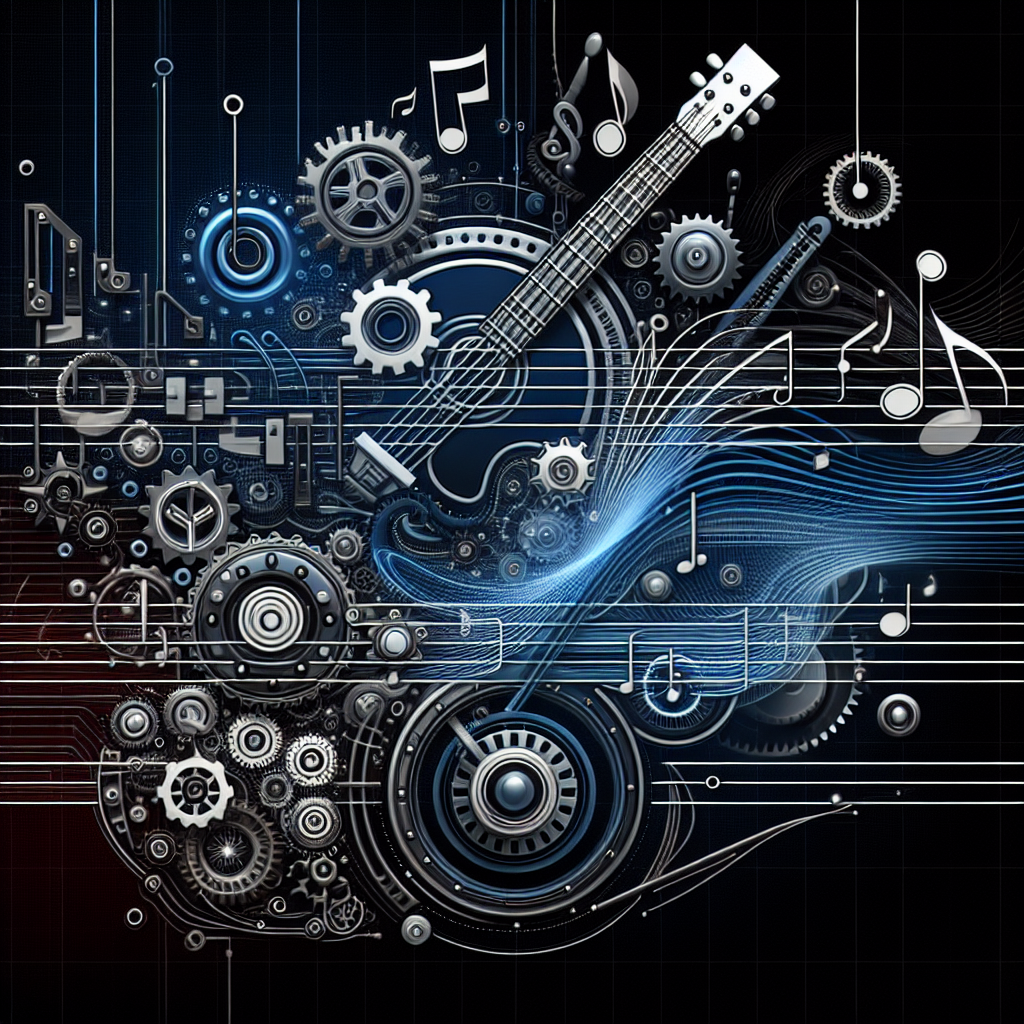Artificial intelligence (AI) has revolutionized many industries in recent years, and the music production industry is no exception. AI technologies are democratizing music production by making it more accessible and affordable for musicians of all levels. From generating melodies to mixing and mastering tracks, AI is transforming the way music is created and produced.
One of the key ways AI is democratizing music production is through the use of AI-generated music. AI algorithms can analyze vast amounts of music data to create original compositions that mimic the style of famous artists or genres. This allows musicians to create high-quality music without the need for expensive studio time or professional producers. AI-generated music can be used as a starting point for musicians to build upon, or even as a finished product for those looking to release music quickly and affordably.
AI is also being used to streamline the music production process. For example, AI-powered plugins can analyze audio tracks and suggest improvements for mixing and mastering. This can help musicians achieve professional-quality sound without the need for a trained audio engineer. AI can also be used to automate repetitive tasks in the music production process, such as tuning vocals or aligning drum tracks, saving musicians time and effort.
Another way AI is democratizing music production is through the use of AI-powered instruments and tools. For example, AI-powered virtual synthesizers can generate realistic instrument sounds that rival traditional hardware synthesizers. This allows musicians to create complex compositions without the need for expensive instruments or equipment. AI-powered tools can also assist musicians with tasks such as chord progression generation, drum pattern creation, and vocal harmonization, making it easier for musicians to create music without advanced technical skills.
AI is also enabling new forms of collaboration in music production. For example, AI algorithms can analyze multiple audio tracks and suggest ways to combine them into a cohesive mix. This can be especially useful for musicians working remotely or collaborating with artists in different locations. AI can also be used to analyze and categorize music samples, making it easier for musicians to find the right sounds for their compositions.
Overall, AI is democratizing music production by making it more accessible, affordable, and efficient for musicians of all levels. With the help of AI technologies, musicians can create high-quality music without the need for expensive equipment or technical expertise. AI-powered tools and instruments are leveling the playing field for aspiring musicians and revolutionizing the way music is created and produced.
FAQs:
Q: How does AI-generated music compare to music created by human musicians?
A: AI-generated music can be indistinguishable from music created by human musicians, especially in genres where patterns and structures are more predictable. However, AI-generated music lacks the emotional depth and creativity that human musicians bring to their compositions.
Q: Can AI completely replace human musicians in the music production process?
A: While AI technologies are advancing rapidly, it is unlikely that AI will completely replace human musicians in the music production process. Human creativity, emotion, and intuition are essential elements of music creation that AI cannot replicate.
Q: Are there any ethical concerns surrounding the use of AI in music production?
A: There are some ethical concerns surrounding the use of AI in music production, such as copyright issues related to AI-generated music and the potential loss of jobs for human musicians. It is important for musicians and industry professionals to consider these ethical implications when using AI technologies in music production.
Q: How can musicians leverage AI technologies to enhance their music production process?
A: Musicians can leverage AI technologies to enhance their music production process by using AI-generated music as inspiration, incorporating AI-powered tools and instruments into their workflow, and collaborating with AI algorithms to streamline repetitive tasks. By embracing AI technologies, musicians can unlock new creative possibilities and improve the quality of their music productions.

